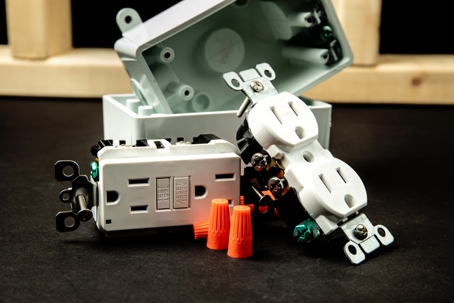Electricity powers nearly every aspect of our daily lives, and understanding the various types of electrical outlets is crucial for ensuring safe and efficient power access. Whether you're a homeowner, business owner, or simply someone curious about the world of electrical systems, knowing the different outlet types can make a significant difference in how you interact with power sources.
1. Standard Outlets
These are the most common outlets found in homes and commercial buildings across the United States. Known as NEMA 5-15 outlets, they feature two vertical slots for the hot and neutral wires and a round hole for the ground. These outlets deliver power at 120 volts and are typically used for small appliances, lamps, and electronic devices.
2. Grounded Outlets
A step up from the standard outlets, grounded outlets, or NEMA 5-20 outlets, have a similar appearance but with a key addition: a grounding pin. They deliver power at 120 volts like their standard counterparts but have the capacity to handle larger electrical loads. In modernized buildings or renovated spaces, you might encounter these outlets, especially in areas requiring higher power usage like kitchens and workshops.
3. GFCI Outlets
Ground Fault Circuit Interrupter (GFCI) outlets are designed with safety in mind. They're recognizable by the "Test" and "Reset" buttons between the slots and are commonly found in areas exposed to moisture, such as bathrooms, kitchens, and outdoor spaces. GFCI outlets can quickly cut off power to prevent electric shocks in case of a ground fault, making them a crucial addition to homes in Denver's climate, where humidity and occasional wet conditions can pose electrical risks.
4. AFCI Outlets
Arc Fault Circuit Interrupter (AFCI) outlets are designed to prevent fires caused by arcing faults in electrical wiring. These outlets are gradually becoming standard in modern electrical systems, especially in bedrooms and living areas where the risk of fire due to faulty wiring is higher. AFCI outlets continuously monitor the flow of electricity and can detect dangerous arcs, interrupting power to prevent potential fire hazards.
5. USB Outlets
With the rise in USB-powered devices, USB outlets have gained popularity. These outlets come with built-in USB ports alongside traditional power sockets, allowing direct charging of smartphones, tablets, and other USB-powered gadgets without needing an adapter. They're convenient additions to homes, hotels, and coffee shops in Denver, catering to the tech-savvy population and visitors.
6. Specialty Outlets
Specialty outlets cater to specific needs, such as 240-volt outlets for heavy-duty appliances like dryers and stoves, RV outlets for recreational vehicles, or twist-lock outlets commonly used in industrial settings. While less common in residential areas, these outlets play crucial roles in various specialized applications and might be found in specific establishments across Denver.
Understanding the different types of electrical outlets not only helps in selecting the right outlets for your needs but also promotes safety and efficiency in electrical systems. If you're considering remodeling or upgrading your electrical infrastructure in Denver, consulting with a certified electrician ensures proper installation and compliance with local regulations.
Whether you need help understanding, choosing, installing, or replacing electrical outlets in your Denver, CO home, Blue Sky Plumbing, Heating, Cooling & Electric is here to help. Our team of professional electricians is committed to providing top-notch services that meet your needs and exceed your expectations. Contact us today for all your electrical needs.

